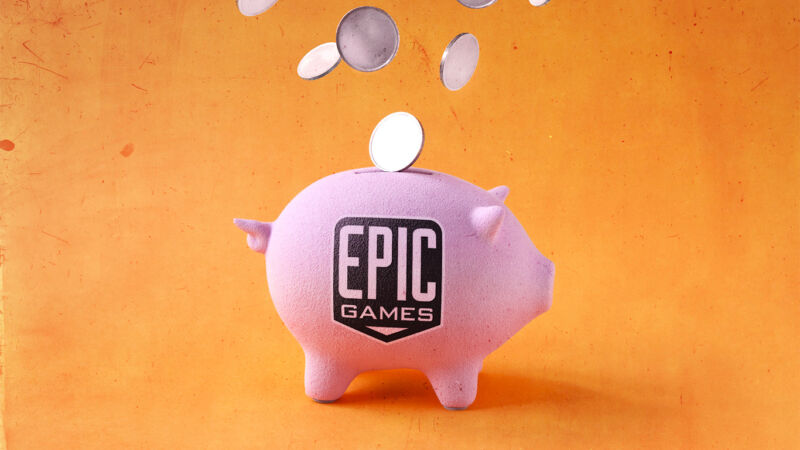
Epic and Google are preparing for another legal battle. You may remember that Google will soon have a billing in the app coming to the Play Store. The new rules require all apps that sell digital goods to use Google Play Billing by March 31st, so Google gets a cut in sales. Any app that does not comply with the requirements has not been able to post updates since March 31st, but the real deadline is June 1st, when these apps will be removed from the Play Store. Epic Games acquired the popular independent music site Bandcamp in March, and it is already taking Google to court over its latest acquisition. Bandcamp does not comply with billing rules, so it is banned in June. As part of its antitrust case against Google, Epic is filing a proposal for a temporary ban on blocking Bandcamp’s delisting from the Play Store.
Epic has attacked Google and Apple because of their app store rules and what Epic says is too high fees. In March, there were a lot of questions about why the creator of Fortnite and Unreal Engine would buy an independent music site. A comment from Music Business Worldwide founder Tim Ingham seems to have reached Epic’s strategy. Ingham notes that Epic failed to get Apple to reduce its cut of 30 percent of the app store, in part because the alternative model Epic could demonstrate in court, the Epic Games Store and its 12 percent fee, was not profitable. Apple’s lawyers argued the unprofitability of Epic’s Games Store justified Apple’s 30 percent fees.
Bandcamp is however, a profitable digital content business. Bandcamp has a searchable content store, and it hosts and delivers the content by charging artists a commission of 10 to 15 percent. Ingham predicted that Epic would hold up Bandcamp’s business model as a viable alternative to Apple and Google’s app store fees, and that Epic would use its new acquisition to attack app store owners. It seems that we are seeing the first actions in that plan.
Bandcamp says their business is incompatible with Google Play Billing
Epic’s lawsuit claims that “Google has a monopoly on the distribution of Android apps and uses its monopoly power to illegally bind its payment product – Google Play Billing – to its app distribution product – Google Play.” Bandcamp is used as an example of what harm this billing system will cause, arguing that Bandcamp’s business model is for the most part incompatible with Google Play Billing.
Epic raises several issues with Google’s billing system. First, that Bandcamp’s payment system is “tailored to maximize efficiency and minimize costs, enabling artists to be paid within 24 to 48 hours of a sale.” Google Play takes 15 to 45 days to pay out, and Bandcamp’s rapid system is designed to help independent artists pay monthly bills on time.
Second, Epic says Bandcamp’s ability to give artists 82 percent of revenue would be hurt if Google takes a 30 percent cut. Epic also notes that Google offered the company a 10 percent commission agreement after Epic complained. Google continues to offer large companies special discounts on their Play Store fees. Spotify has another special scheme that allows it to run its own payment system with Google Play. Epic also rejected the 10 percent deal, saying Bandcamp currently has a 7 percent profit margin on its 13 percent cut, so they can’t afford it.
One of the more interesting complaints is that Google Play Billing just is not compatible with the type of store that Bandcamp operates. The first is that Bandcamp is a mix of digital and physical content. It makes sense for a music company – you can buy a digital download, a physical CD or vinyl record and some bandmerch like a T-shirt, all in one store. Google Play Billing, which was intended for in-app purchases, is not built for this and does not support physical sales. Bandcamp was to support two different payment systems and it was to run two checkout systems. Bandcamp’s other compatibility problem is that it’s an open marketplace with thousands of artists selling goods. Google Play supports payment of a single developer unit, not to play intermediary for thousands of sellers.
On Bandcamp’s blog, CEO Ethan Diamond said: “If Google’s policy changes continue on June 1, we’ll either have to transfer Google’s fees to consumers (making Android a less attractive platform for music fans), transfer fees to artists. (which we would never do), permanently run our Android business at a loss or turn off digital sales in the Android app. ” Removing purchases due to Google’s new billing rules is the option Amazon and Barnes & Noble took earlier this month. Poor Barnes & Noble is also an Android producer and now it can not sell digital books on it own hardware!
Epic’s antitrust case against Google is set for April 2023, while incompatible apps will be launched from the Play Store in a month. We will be looking for more development.
16:18 ET update: Google sent a statement:
This is yet another worthless claim from Epic, which is now using its newly acquired app Bandcamp to continue its efforts to avoid paying for the value that Google Play provides. We’ve been transparent about Play’s payment policies for more than 18 months, and as Epic knows, Bandcamp is entitled to a service charge of only 10% through the Plays Media Experience Program – far less than the fees they charge on their own platforms. Despite their claims, Android’s openness means that Bandcamp has several ways to distribute their app to Android users, including through other app stores, directly to users via their website or as a consumer-friendly app, as they do on iOS.
![Bandcamp says it can not afford Google Play billing, Epic files injunction [Updated]](https://androidplum.com/wp-content/uploads/2022/04/Bandcamp-says-it-can-not-afford-Google-Play-billing-Epic-300x150.jpg)